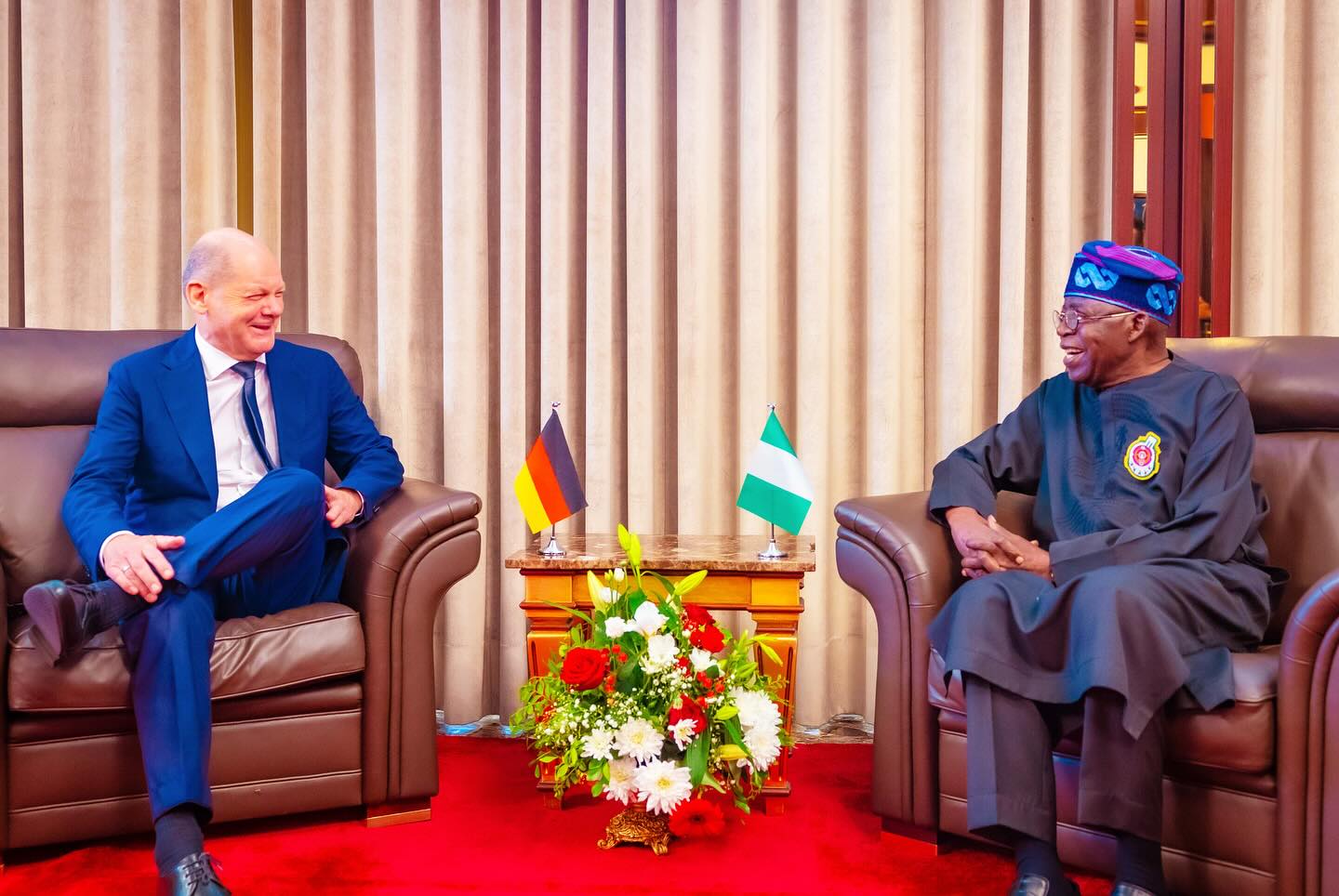Headlines
German Chancellor announces interest in investing in Nigeria

As he began a two-nation tour of sub-Saharan Africa on Sunday, German Chancellor Olaf Scholz stated that his country was eager to invest in gas and essential minerals in Nigeria, the continent’s largest oil producer.
Scholz is making his third trip to the area in the last two years, and his visits coincide with other issues that underscore the region’s growing significance as an energy-rich area in which Berlin has historically played a minimal role.
“At a joint briefing with Nigerian President Bola Tinubu in the capital Abuja, Scholz told reporters that there is a willingness to invest, particularly in critical minerals.”
Regarding gas, he applauded Nigeria’s initiatives to increase its LNG production.
“It is then the question for German companies to do their private business if we are successful, if there is a better chance of exporting the produced gas,” stated Scholz.
READ ALSO: At the Presidential Villa, Tinubu welcomes the German Chancellor
According to Tinubu, he had “a very deep discussion” about the gas issue and urged German companies to fund pipeline construction in Nigeria.
Nigeria is also attempting to attract investors to its mining industry, which has historically been undeveloped and contributes less than 1% of the GDP of the nation.
Scholz stated that German businesses were also willing to construct railroads in Nigeria, but he did not provide any specifics. Chinese businesses are currently in the lead in that industry; they have secured contracts to build new train lines in the largest economy in Africa.
Additionally, Scholz met with the president of the ECOWAS commission, who stated that in light of the recent military takeovers in Niger and Gabon, cooperation with the bloc was imperative “to prevent that putsches will become a trend.”
By REUTERS
